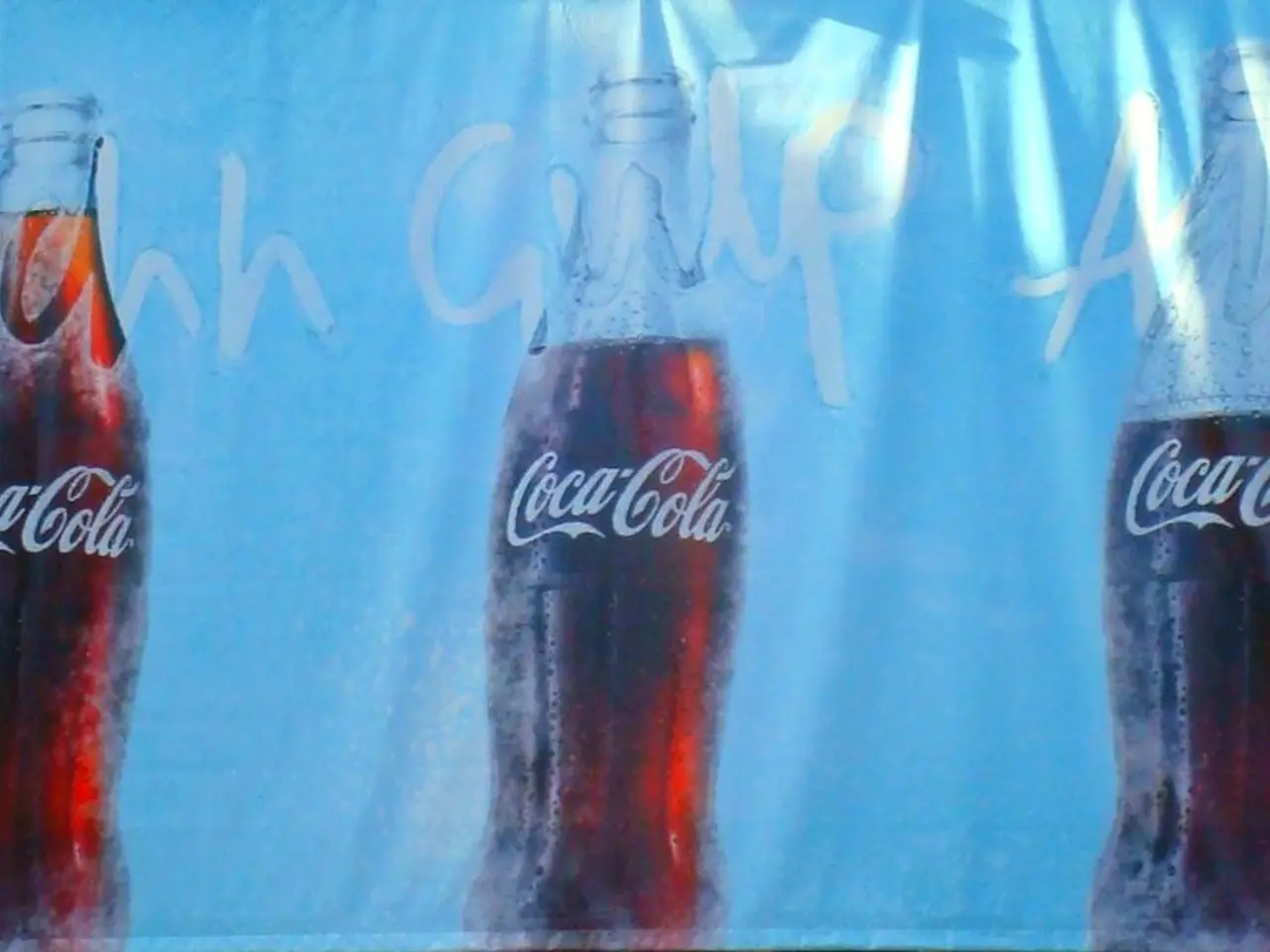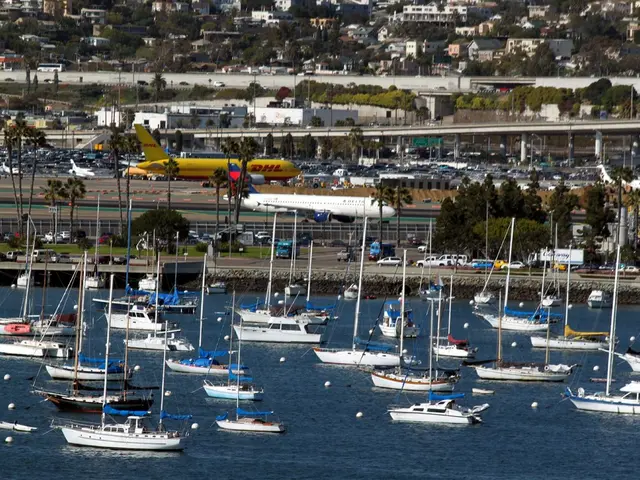Coca-Cola's share value is being unfairly blamed or accused.
In recent times, Coca-Cola, the iconic beverage company, has been facing a series of challenges that are affecting its sales and profits. The company's market share in Pakistan has seen a slight decline, dropping from 47% to 43%. This trend is also visible in Turkey, where Coca-Cola's market share has dropped from 59% to 54%. These declines are attributed to a combination of factors, including weak consumer sentiment and rising costs. The political climate in certain regions, such as Turkey and Pakistan, has also played a role in Coca-Cola's struggles. Israel's escalations and alleged attacks on civilians in the Gaza Strip have led to unpopularity for the company in these countries. As a result, boycott calls have been made against Coca-Cola, but the effectiveness of these calls in changing consumer behavior is questionable. The boycott calls might not have a significant impact on Coca-Cola's sales in the near future. This is because switching from Coca-Cola to other brands does not necessarily achieve much in the context of boycott calls. Furthermore, there are no available search results identifying a Coca-Cola shareholder involved in recent revenue losses due to boycott calls in Turkey and Pakistan. Coca-Cola's regional partner in Istanbul, Coca-Cola Icecek AS, has also reported noticeable profit declines. Despite these declines, Coca-Cola Icecek AS stated that volumes continue to develop positively. The company's stock has incurred losses of over four percent on a monthly basis. As of Tuesday morning, the Coca-Cola stock stood at $67.43, which is significantly lower than its 52-week high of $74.38. Despite these challenges, Coca-Cola is dealing with more than just political tensions. The company is also facing weak consumer sentiment and rising costs in many markets. Many people in Turkey and Pakistan are turning against Western brands due to Israel's partnership with the US. In conclusion, Coca-Cola is facing a complex set of challenges that are affecting its sales and profits. The company's stock has seen a significant decline, and its market share in key regions like Pakistan and Turkey has dropped. While boycott calls might not have a significant impact on the company's sales in the near future, Coca-Cola is working to address the underlying issues of weak consumer sentiment and rising costs.
Read also:
- GAC Aion stepping up recruitment efforts in anticipation for global market expansion in China
- Top-Notch Books for Business Motivation: A Compulsory Reading List for Achieving Success
- Exploring Elon Musk's Wealth: Investigating the Billionaire's Monetary Domain
- Annual Gathering of the Savory Institute UK Network








